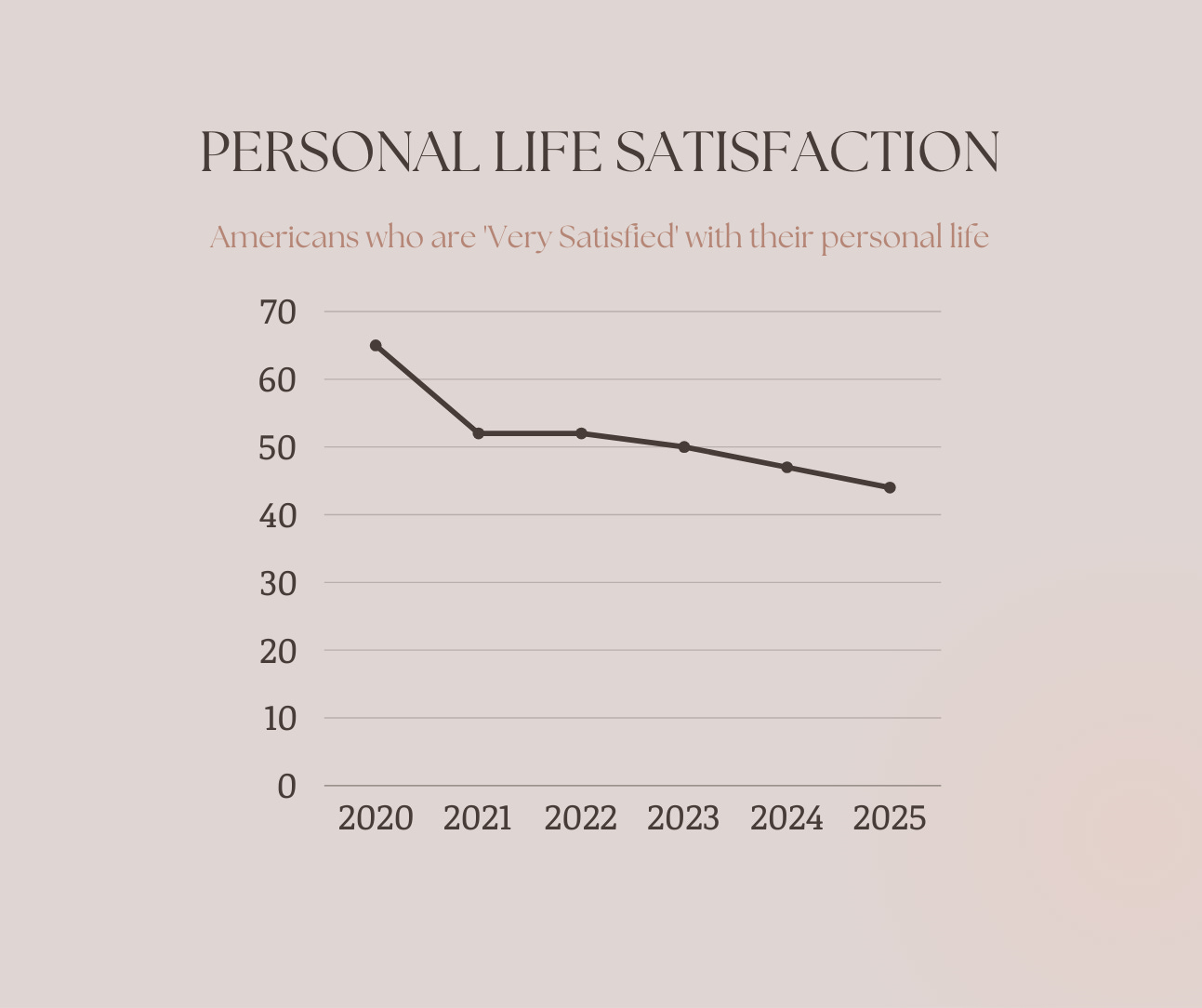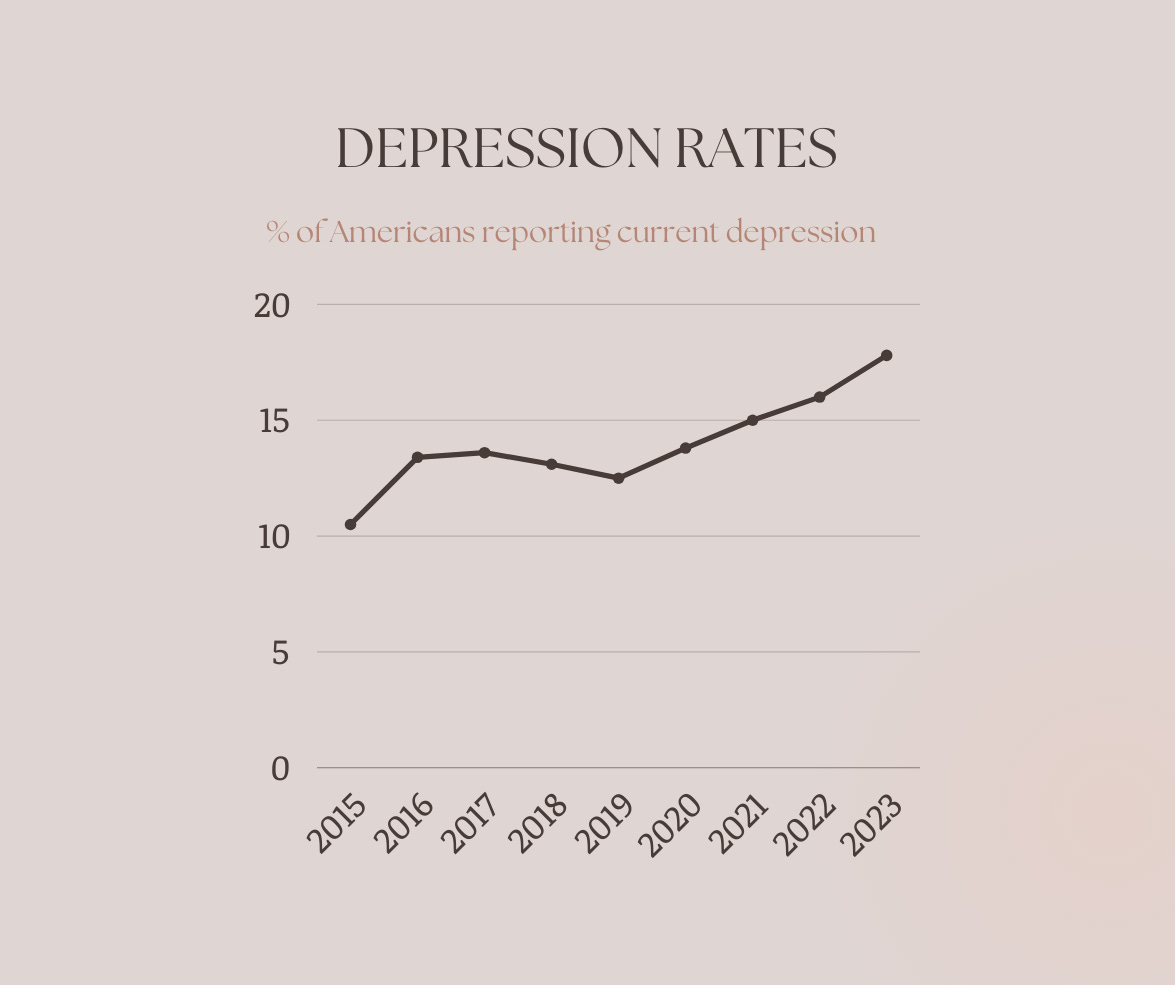The Obsession With Identity
Sometimes when you view the cascading winds of public opinion at the surface level, trends and behavioral shifts can seem confusing and disconnected. However, when you take a step back, the pieces generally fit together quite neatly. While not generally mentioned in commentary or headlines, a broadened perspective reveals a compelling relationship between the distinct aimlessness and unprecedented infatuation with personal identity found in many Americans today.
The hard truth is this: our culture has largely traded purpose for identity. Media, influencers, and institutions instruct that we must seek satisfaction through the recognition and magnification of our own traits and our own needs, if we really want to be happy. From so-called “gender ideology” to simple personality traits, modern Americans are constantly bombarded with the idea of making our issues into our identity, and they are nearly obsessed with amplifying class-like distinctions above all personal attributes.
While the Left has long owned class warfare and identity politics, the practice has subtly shifted from the political world into our personal lives. One reason for this expansion is the exchange of aim within many in society that has largely gone unrecognized: Americans have stopped seeking purpose in their life and, instead, worship their own class of personality or affliction. This shift is predictable, because identity is largely focused on self. After all, the natural end to secular humanism is not the denial of God; it is the replacement of God with humanity as its own deity.
That is why, despite differences in topic, all radical identity ideologies are based on a single premise: the glory of self above all else.
Purpose, on the other hand, is rarely found without looking outwardly toward the benefit of others. You simply cannot have purpose in isolation. Whether you believe in evolution or creation, divinity or simple biology, all creatures’ purpose is found in the context of our world and its inhabitants. In truth, the very idea of purpose points to the notion of original design, but you need not be a Christian to recognize this universal reality.
Sadly, the current rates of depression, addiction, and dissatisfaction found in America today illustrate that it is difficult to find true happiness detached from true purpose. According to a study by Gallup, just 44 percent of Americans say they are “very satisfied” with the way things are going in their personal lives, the lowest since Gallup began tracking in 2001. In fact, the trend of misery is so pervasive, especially among young Americans, that the U.S. recently fell to a historic low ranking in the annual World Happiness Report. Ironically, happiness is one of the original aims that sparked our culture’s pursuit of self-gratification.
It is not surprising then that depression rates have hit new highs in America. According to Gallup, the percentage of American adults who report a diagnosis with depression at some point in their lifetime has reached 29 percent, some 10 points higher than in 2015. Plus, nearly 18 percent of adults indicate that they currently are depressed or are being treated for depression, which is up seven points since 2015.
Nearly 30 percent of American women have received mental health treatment today. According to the Kaiser Family Foundation, nearly one-quarter (23 percent) of American adults, both male and female, received mental health treatment in 2022. While treatment for mental health issues have increased overall, young Americans have seen the highest increase of treatment over time.
Clearly, we are witnessing a mental health crisis of unprecedented proportions. While there are many causal factors involved, declining socialization, shrinking influences of faith and community, digital technology, and modern lifestyles and diets all contribute to the prevalence of a society plagued by mental health issues. Yet, regardless of cause, the impact of the crisis has grown far beyond health.
One result is that culture has now made a class-like identify based on the fallout from the embrace of self-indulgent practices that it created. It is true that misery loves company. Yet, in the cultural sense today, affliction can become an addiction.
Researchers at the Harvard Medical School report that about half of Americans believe in the importance of taking “mental health days,” with women valuing the practice in greater numbers than men. Other researchers point out that most workers take “mental health days on Mondays (55.0%) and Fridays (43.9%), giving themselves a long weekend.” It’s funny how that works out.
Furthermore, even the liberal New Yorker magazine has recognized the rise of “therapy-speak” in the everyday vocabulary of Americans. Commentators, like Freya India, have dubbed this phenomenon the “therapy culture.” While the goal of eliminating the stigma of mental health treatment is certainly a positive thing, creating identities based on self-labeled issues can be problematic for society, for no other reason than the shift in attention. Too much focus on our own problems and needs can be just as unhealthy as failing to address them at all.
Experts have long studied the link between self-absorption and self-preoccupation and things like depression and anxiety. Without research, this just makes sense – if we focus too much on ourselves, we can avoid our natural inclination to find and live out our purpose, and instead seek a class or identity to elevate within our culture.
There are many contributors to today’s rising numbers of mental health treatments. Detection, awareness, and reduced stigma all likely play a role in increasing the numbers of American adults seeking treatment, regardless of whether the actual need among Americans has shifted over time. Plus, the rejection of purpose and pursuit of self-glorification has probably led to increased numbers of mental health problems, much like the isolation of our kids and the elderly during the pandemic and the usage of social media among young people has generated soaring numbers in rates of depression and anxiety.
Some have called Gen Z and Millennials the “wasted” or new “lost generation.” While this description may exhibit some truth, I believe that the crisis facing my generation and others is not rooted in effort, but in lack of purpose. Performance is just a symptom.
This is where people, including good-heart individuals in the Church, get confused about capitalism. Leftists wrongly argue that the goal of success or accomplishments is routed in self-interest. In truth, the purpose of progress is found in the benefit of others. Self-interest is a necessary condition to achieve the desired state.
Faith, individual liberty, and self-governance all create the fundamental building blocks of a society that provides the best hope of prosperity, peace, and happiness. Without the freedom to pursue our own interests, the conditions are not in place for a benevolent society to exist.
Purpose can only be found in obedience to natural law and the God who created it. The adoration of anything less – such as even the means to achieve it – only leads to emptiness, distortion, and destruction.
Thus, the Catch-22 facing our culture today is this: to help ourselves we must turn our aim to something higher. The most unhappy lives are often lived in pursuit of our own happiness.





